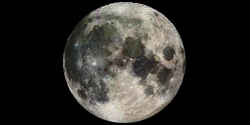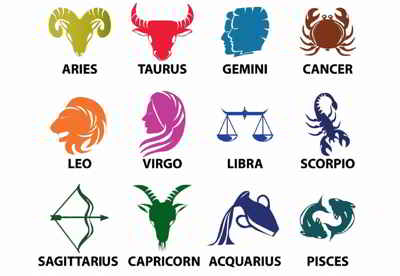Western Astrology: Classical Planets: Moon
The Moon is the ruling planet of Cancer, the sign that governs the 4th house in the natural zodiac, and is exalted in Taurus.
The seven classical planets are those easily seen with the naked eye, and were thus known to ancient astrologers. They are the Sun, Moon, Mercury, Venus, Mars, Jupiter and Saturn. Sometimes, the Sun and Moon were referred to as "the lights" or the "luminaries".
Since the Moon is the closest 'planet' to Earth, it zips around the zodiac, completing its circuit in less than a month. It also touches us more deeply than most planets. Moon signs are secondary but very important. Our moon sign point to how we deal with our emotions and how we instinctually act or react to situations. The power of this reaction will be determined by astrological aspects as well as what actual phase the moon is in at birth. A man with a sun sign and a woman with a moon sign are very compatible. The Moon is the cosmic mother or Goddess in Greek mythology. The moon is closely tied to mood and emotions. It is also associated with your relationships with women in general and your relationship with your mother. Depending upon its assignment in your natal chart or the current phase of the moon and its placement in the zodiac, you may find that your moods change as with the tides. New moons reflect beginnings and full moons are conclusions. The Moon rules the Cancer Zodiac Astrology Sign.
Western Astrology: Classical Planets: Moon
Moon
|
|

In Roman mythology, the Moon was Luna, at times identified with Diana. The Moon is large enough for its gravity to affect the Earth, stabilizing its orbit and producing the regular ebb and flow of the tides. The Moon is the swiftest of all the celestial bodies.
The Moon is Earth's only natural satellite. It is one of the largest natural satellites in the Solar System, and, among planetary satellites, the largest relative to the size of the planet it orbits.
Distance to Earth: 238,900 miles
Gravity: 1.622 m/s?
Age: 4.527 billion years
Orbital period: 27 days and spends two and a half days in each sign.
Circumference: 6,784 miles
Orbits: Earth
Her daily motion is an average of 12 degrees. The lunar day syncs up with its orbit around Earth in such a manner that the same side of the Moon
always faces the Earth and the other side, known as the "far side of the Moon" faces towards space.
Astrologically the Moon is associated with a person's emotional make-up, unconscious habits, rhythms, memories, moods and their ability to react and
adapt to those around them. It is also associated with the mother, maternal instincts or the urge to nurture, the home, the need for security and the
past, especially early experiences and childhood. The 1st-century poet Manilius described the Moon, or Luna, as melancholic. In medicine, the Moon
is associated with the digestive system, stomach, breasts, the ovaries and menstruation (which does occur on a monthly cycle) and the pancreas. Despite
Manilius's assignation, the Moon is commonly associated with the phlegmatic humor; it ruled the animal spirits. In modern astrology, the Moon is the
primary native ruler of the fourth house.
Rules Day of the Week: Monday
Monday is ruled by the Moon. "Monday's child is fair of face" might refer to the sensitivity and youthfulness associated with the Moon. They might be the strong silent type, keeping all of their emotions in check until called on. However Monday’s child is strongly guided by their emotional center, even if they do not show that side to them so much.
The Moon or Luna is associated with Monday, the word Monday comes from the Old English word for Moon day or Moon's day, and in Romance languages, the name for Monday comes from luna . Dante Alighieri associated the Moon with the liberal art of grammar.
Chinese and Indian Astrology
In Chinese astrology, the Moon represents Yin, the passive and receptive feminine life principle. In Indian astrology, the Moon is called Chandra or Soma and represents the mind, queenship and mother. The north lunar node (called Rahu) and the south lunar node (called Ketu) are considered to be of particular importance and are given an equal place alongside the seven classical planets as part of the nine navagraha.





